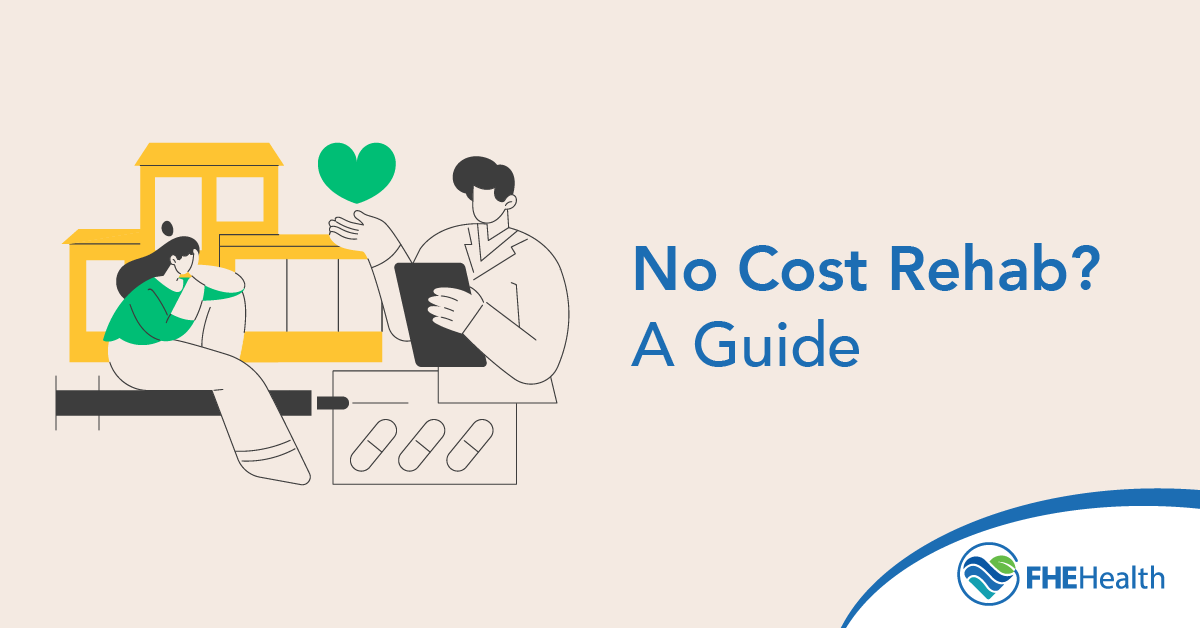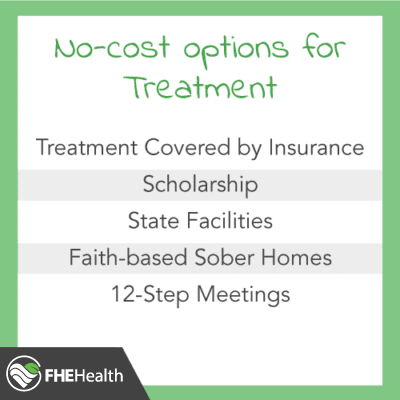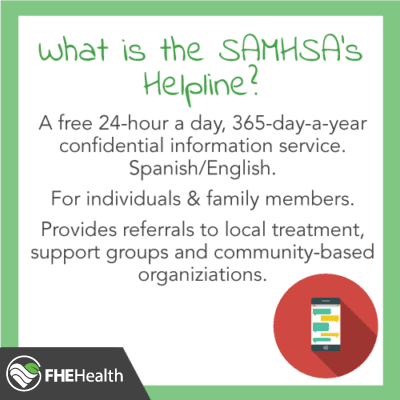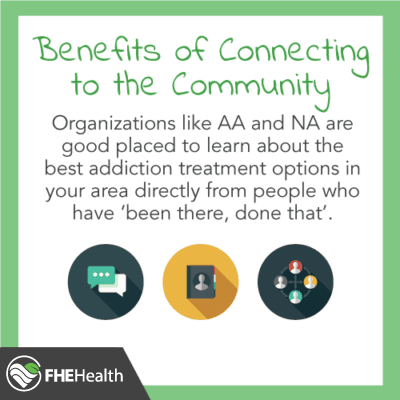
Addiction can take a real toll on your career and finances, leaving you without the health insurance or money you need to pay for rehab. This can leave you feeling frustrated, hurt and hopeless — feelings that only isolate you and make you want to keep using. That isolation is dangerous, and substance abuse isn’t something you should try to tackle alone. Fortunately, free rehab clinics exist to help you overcome your addiction without the threat of medical bills.
How to Find Free Rehab Clinics
Do a SAMHSA Search
 The Substance Abuse and Mental Health Services Administration, better known as SAMHSA, maintains an up-to-date database of treatment facilities throughout the United States that provide services for people struggling with substance abuse or mental health issues. Its online search tool lets you locate facilities within a certain area to help you when searching for “free rehab centers near me.” Simply enter your address or zip code to explore your options.
The Substance Abuse and Mental Health Services Administration, better known as SAMHSA, maintains an up-to-date database of treatment facilities throughout the United States that provide services for people struggling with substance abuse or mental health issues. Its online search tool lets you locate facilities within a certain area to help you when searching for “free rehab centers near me.” Simply enter your address or zip code to explore your options.
Call the SAMHSA National Helpline
SAMHSA operates a free, confidential helpline that’s open 24-7. The number is 1-800-662-HELP (4357), and service is available in English and Spanish.
Also known as the National Treatment Referral Routing Service, the SAMHSA helpline provides information and referrals to drug and alcohol treatment centers, addiction support groups and community-based rehab services. SAMHSA’s counselors refer uninsured and underinsured callers to facilities that charge fees on a sliding scale based on the individual’s ability to pay. SAMHSA can also connect callers with free rehab centers in their area.
Ask About Scholarships
Many accredited rehab facilities, including FHE Health, offer a limited number of scholarships for patients who simply don’t have the financial means to access the addiction treatment help they desperately need.
These scholarships are sponsored by the treatment center itself, an alumni or a third-party individual or organization, such as a community-based service group, church or union. Occasionally, a treatment center graduate decides to “pay it forward” by funding a scholarship at the facility where they got clean. It’s also common for members of the recovery community to designate funds from their wills to be used toward addiction center scholarships for residents who can’t afford to pay.
Consider a Faith-Based Rehab Center

Many faith-based organizations operate drug and alcohol treatment facilities throughout the country that offer free rehab services. The Salvation Army is the largest no-fee rehab provider in America, and the YMCA offers free community-based substance abuse services nationwide.
Catholic Charities USA operates and supports several residential recovery programs, such as Evergreen House for women. The organization also operates the Flatbush Addiction Treatment Center in New York City, an outpatient substance abuse center for youth aged 12 and older that offers individual and group therapy, dual-diagnosis groups and medication-assisted treatment.
Faith-based treatment programs include references to religion, and the role religion plays in their addiction services can vary dramatically from center to center. If you’re uncomfortable with religious programs, this might not be the best choice for you.
Research State-Funded Rehab Centers
Free addiction counseling is available through many county hospitals, public health departments and nonprofit organizations. Counselors can help you connect with state-funded treatment centers and behavioral health services.
In most cases, publicly funded state treatment programs require proof that you’re a resident of the state where you’re applying for rehab. You’ll also need to verify that you qualify for free treatment based on your lack of assets, savings and income. Lastly, you may need to participate in therapy sessions or groups to demonstrate that you’re ready to commit to rehab before you’re approved for free treatment services.
Connect With People Who Are in Recovery
Reach out to the recovery community in your area for help finding a free rehab center. Groups such as Alcoholics Anonymous and Narcotics Anonymous are good places to learn about addiction treatment options directly from people who’ve “been there, done that.”
If you’re supporting a loved one who needs to access rehab, consider attending a local Nar-Anon, Al-Anon or Families Anonymous meeting to make connections within the recovery community. Since not everyone is able (or wants) to participate in a 12-step meeting in person, online support groups exist that can connect you with others who may be able to help you get into rehab without money or insurance coverage.
Pros and Cons of Free Rehab Centers

In 2022, 168.7 million Americans used substances in a single month. Only a fraction of these people seek treatment, but with many substance use patients living in poverty, free rehab centers often have long waiting lists. This makes it more difficult for people to seek help, increasing the chance of a relapse.
Since they typically rely on donations, free alcohol rehab centers often have tight budgets. This could lead to crowded facilities, overworked staff and a high resident-to-employee ratio. Likewise, free rehab clinics might not have access to the latest medical technology.
However, despite these challenges, free rehab is still a good option if you don’t have a lot of money. You can relax and focus on recovery without worrying about accruing tens of thousands of dollars in medical bills. You also get access to a wide range of programs, including detoxification, medication management, therapy and aftercare.
Free alcohol rehab also reaches people who understand the value of charity. Once they’ve completed their program, they might donate money or volunteer at the clinic to show their gratitude.
With the rise in popularity of social networking, people who need funds to pay for addiction treatment are increasingly using crowdfunding platforms like GoFundMe, GiveForward, and YouCaring to ask for help.
According to Rob Solomon, CEO of GoFundMe, 1 in 3 campaigns on the platform is seeking funds to cover medical-related expenses. At any given time, you’re likely to find thousands of active crowdfunding campaigns looking for money for addiction rehab. The majority of these campaigns are either completely unfunded or fall far short of their goals.
Despite the poor odds of success, if you have a strong social network and feel comfortable asking for help, you might want to consider starting a crowdfunding campaign to raise the money you need to pay for rehab.
Contact FHE Health
If you’re ready to take control of your life by committing to a rehab program, call FHE Health to discuss our solutions. Our team of experienced, compassionate addiction and mental health experts can help you learn about our scholarship program and other no-cost treatment options. If you don’t qualify for free alcohol rehab, we’ll talk about other ways to pay.






